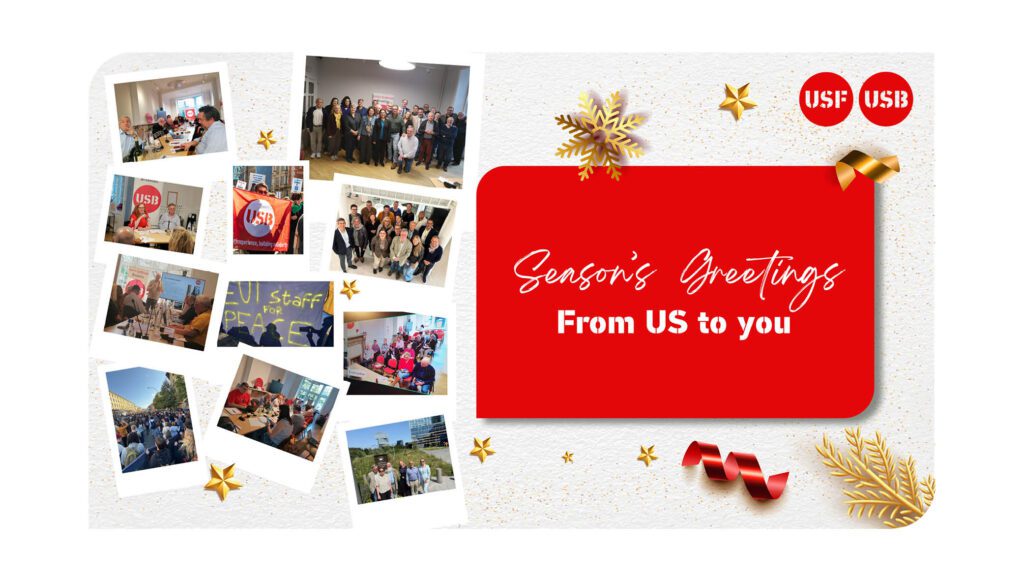Court confirmed: more promotions for Council staff

Court Ruling
In its judgment of 30 April 2025 in case T-202/23, the Court confirmed that the promotion possibilities for EU staff must be calculated strictly in line with the EU Staff Regulations (Article 6 and Annex IB), based on a fixed percentage of staff in active employment at a specific time. The Court further clarified that institutions do not have the discretion to alter the number of promotion possibilities.
The Court’s decision is welcome news for the entire staff of the Council and for Union Syndicale, which has long criticized the Council’s promotion practice.
A decade of disputed practices
For over ten years, Union Syndicale has opposed the Council’s methodology for calculating the number of annual promotion possibilities, arguing that it deviated from the legal framework, artificially slowed career progression and reduced promotion rates.
On the initiative of US, the Staff Committee issued negative opinions on this practice every year. Following the 2022 promotion exercise, Union Syndicale supported three of its members in grade AST 7 in challenging the Council’s approach before the Court. The Court has now ruled in their favour, delivering a decision that clarifies promotion rules not just for the Council, but for all EU institutions.
Unlawful promotion cuts
Over the years, the Administration significantly reduced the number of promotion possibilities for colleagues in the grades AST 7, AD 12 and AD 13 while marginally increasing promotions in lower grades and function groups. The Administration explained that a correct application of the statutory rules would unnecessarily accelerate career progression for some colleagues.
An example:
In 2024 alone, promotion possibilities for AST 7, AD 12 and AD 13 were cut by 37, while only 12 additional promotions were granted in lower grades. This led to an overall reduction of 25 promotions for the year. In view of the financial impact of this approach on staff salaries, the discrepancy is even more evident.
This practice was unlawful and inconsistent. While a very small number of staff members at lower grades may have briefly benefitted, they too found themselves blocked upon reaching AST 7 or above – often for the remainder of their careers. Union Syndicale reaffirms its support especially for colleagues in lower grades and function groups, but stresses that career advancement must be governed by legal principles, not internal redistribution that pits grades against one another.
Partial compliance is not enough
In response to the ruling, the Administration has agreed to reopen the 2022 promotion exercise – but only for the three staff members involved in the legal challenge. This selective application ignores the broader impact of the judgment, notably the 19 additional promotions that should have been granted to AST 7 staff in that year alone. Union Syndicale considers this response insufficient.
It calls on the Administration to fully implement the ruling, restore all legally mandated promotions from 2022 onwards, and ensure compliance with the Staff Regulations across all affected grades, including AD 12 and AD 13. Doing so would relieve existing bottlenecks, improve promotion prospects across the board and re-build trust in our promotion system.
For more details about the Court case, please read the latest Staff Matters.
Upcoming Consultation Procedures

Union Syndicale has initiated two new consultation requests to strengthen involvement of staff representatives in institutional decision-making:
EPSO Selection Reform:
Recent changes to the EPSO competition format have made selection procedures faster but also less comprehensive and therefore less reliable in identifying the best candidates for the EU institutions. As a result, institutions now bear greater responsibility for identifying suitable officials from the EPSO reserve lists. Union Syndicale is calling for a revision of the GSC’s recruitment rules to adapt to this new reality. Specifically, it advocates for joint selection panels with equal representation of administration and staff representatives.
Modernising the Staff Regulations Consultation Procedure:
The current procedure for consulting trade unions on proposed changes to the Staff Regulations, dating back to 1981, is outdated. Union Syndicale has asked the Administration to launch negotiations with the aim of modernising the process. The goal is to ensure meaningful and timely involvement of staff representatives in any future reform of the Staff Regulations.
We will keep you informed.
Lastly, we wish you all a nice and relaxing summer break.





